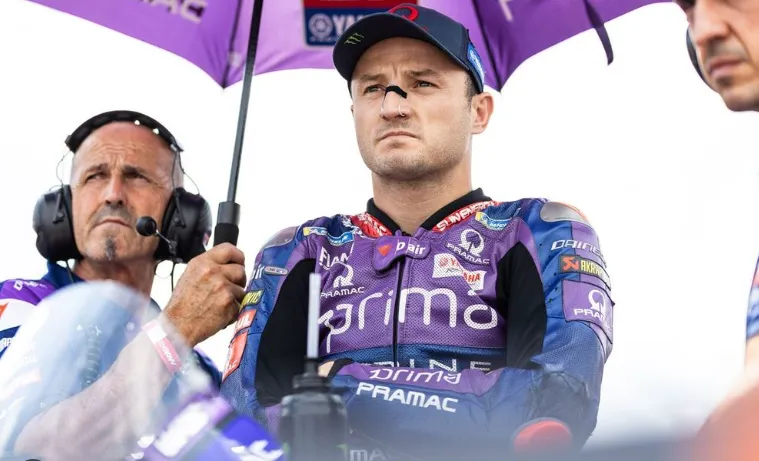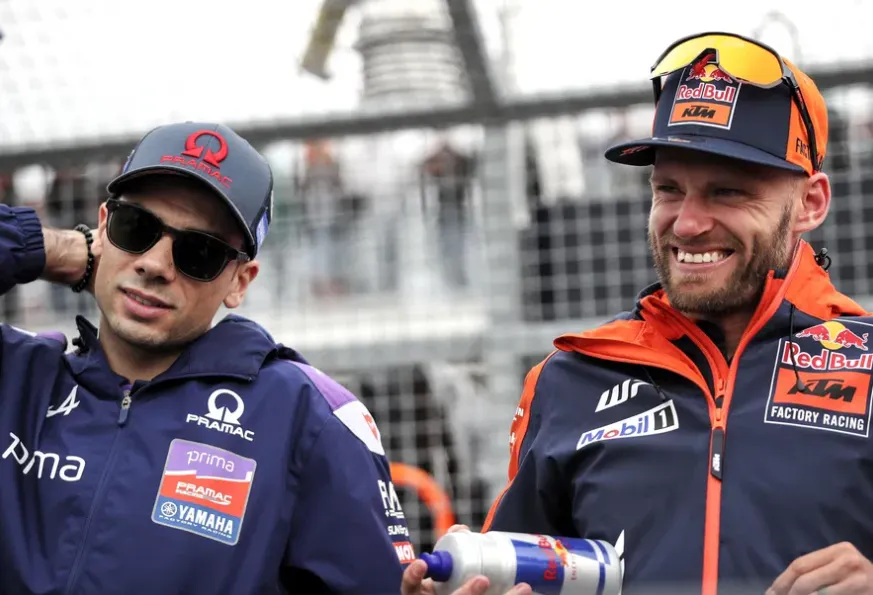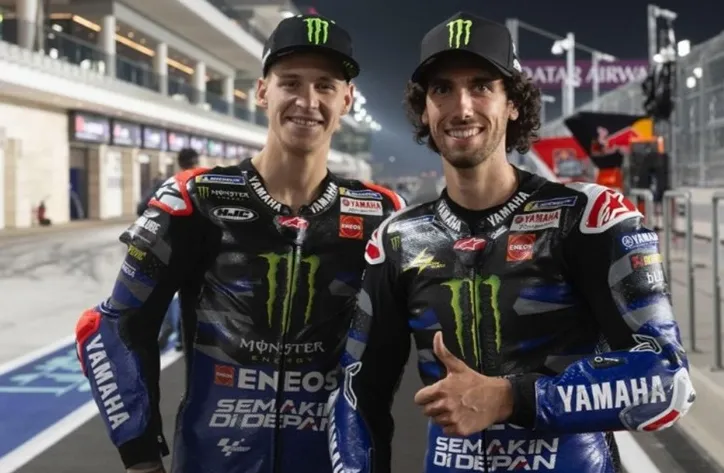
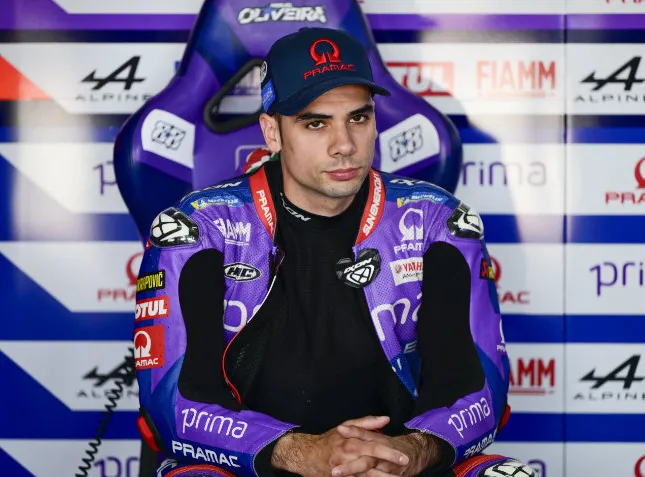
Running Against Fate: Miguel Oliveira Asserts ‘I Don’t See Myself on the Couch…’ Despite Adversity
Miguel Oliveira, one of MotoGP’s most quietly tenacious riders, is navigating the toughest stretch of his career with a mixture of humility, pain, and unwavering determination. While injuries have become an unfortunate recurring theme in his journey, the Portuguese star’s spirit remains unbroken. His recent remarks echo not only a fighter’s grit but a deep and personal attachment to the sport he refuses to abandon.
Oliveira’s Resilience in the MotoGP Paddock
In the unforgiving world of MotoGP, where the difference between triumph and disaster often comes down to fractions of a second, Miguel Oliveira stands as a powerful symbol of perseverance. The Trackhouse Racing Aprilia rider has endured multiple injuries, missed opportunities, and setbacks in the past two years, yet his desire to race hasn’t diminished. In fact, it seems to have grown stronger.
“I don’t see myself on the couch,” Oliveira stated firmly. It’s a phrase that has come to define his current mindset. It speaks to a racer who refuses to surrender—even when fate seems determined to sideline him.
The Physical and Mental Toll of Recent Seasons
Oliveira’s time with Aprilia has been marred by injury. His transition from KTM to Aprilia was supposed to represent a new chapter in his career—one filled with podiums and progress. Instead, he found himself embroiled in a cycle of rehabilitation and limited participation.
“The last few years… were tough in that sense,” Oliveira admitted in a recent interview. “I didn’t do the races I would have liked to do; I rode while injured for a while.”
Riding while not fully healed is a gamble—one that every MotoGP rider has had to consider at some point. But Oliveira’s decision to push through pain showcases just how desperate he was to stay in the paddock. Still, the cost of racing injured is immense: not only does it risk aggravating existing damage, but it also chips away at confidence and rhythm—two cornerstones of elite racing.
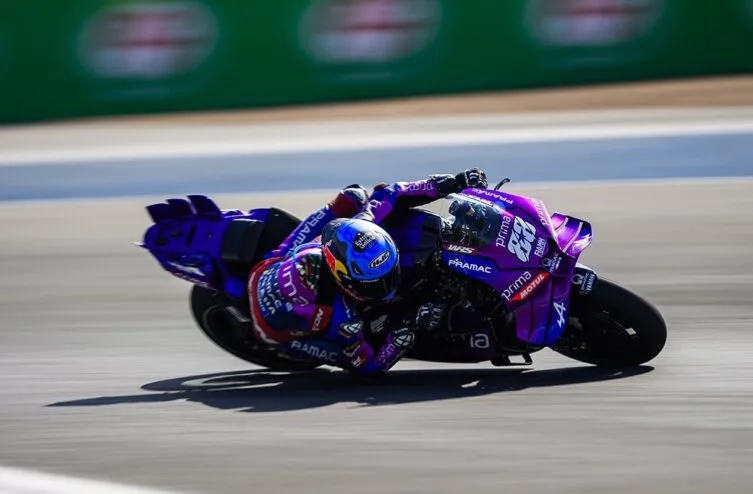
The Importance of Gradual Recovery
Unlike some riders who prefer a dramatic comeback, Miguel Oliveira adopts a more methodical, patient approach to returning from injury. His philosophy is grounded in a realistic understanding of what it takes to race at the highest level while ensuring personal safety.
“What you try to do is be at the minimum to come back,” he explained. Rather than demanding top-ten finishes right away, Oliveira prioritizes regaining comfort and confidence on the bike. “To gain time in a safe and relatively competitive way”—this is his true goal during the recovery phase.
His outing at Le Mans was a prime example. Though far from his most competitive race, it marked a meaningful milestone. Just being on the grid, reconnecting with the visceral sensations of MotoGP, was a victory in itself. Oliveira’s strategy might not make headlines like a shock win would, but it reveals the mental maturity of a rider who understands the long game.
The Emotional Cost of Being Sidelined
While physical pain is part of every racer’s career, Oliveira also highlights a more subtle and painful wound: the emotional toll of absence. Watching others compete while he remains on the couch is a torment he struggles to accept.
“Being at home and seeing someone else do what you love most—there’s nothing more painful than that,” he shared candidly. His voice, filled with longing and frustration, paints the picture of a rider desperate to reclaim his place among his peers.
To Oliveira, the racetrack isn’t just a place of competition—it’s a space of identity. Being away from it doesn’t just mean lost results; it means a loss of self. “At the end, the only question is how long it will take you to return,” he reflected, underscoring the inevitability of his comeback.
Oliveira’s Statement of Defiance: ‘I Don’t Belong on the Couch’
Perhaps the most telling quote of all came when Miguel Oliveira declared, “I don’t see myself on the couch.” It’s not just a rejection of inactivity—it’s a declaration of defiance. Despite the hurdles, despite the setbacks, Oliveira insists he is not finished.
This mindset encapsulates the essence of what makes elite athletes exceptional. It’s not just their skill that sets them apart—it’s their sheer unwillingness to accept defeat. Oliveira’s statement is both personal and universal. It speaks to every rider who has ever questioned their worth, every injured athlete who has watched their dreams fade in real-time.
The Pressure of Expectations and Future Uncertainty
Despite Oliveira’s commitment, there’s no denying that time is ticking. MotoGP is a results-driven business, and factory seats are scarce. Young talents like Pedro Acosta are emerging fast, while veterans like Maverick Viñales and Aleix Espargaró still command top-tier attention.
For Trackhouse Racing and Aprilia, Oliveira’s return needs to eventually deliver results. His skill is not in doubt—his wins with KTM proved that—but his ability to string together a full season without physical complications is now the pressing question.
Yet Oliveira isn’t racing just to silence critics. He’s racing to honor his love of the sport and to fight for the place he believes he still deserves.
The Role of Aprilia and Trackhouse Racing
Behind the scenes, both Aprilia and their satellite outfit, Trackhouse Racing, have supported Oliveira’s journey, but patience in MotoGP has limits. With limited testing and constant evolution in the field, the team needs a healthy and consistent rider.
Still, the Italian brand knows what Oliveira is capable of. He’s not just a journeyman; he’s a former race winner with deep technical knowledge and natural racecraft. If fully fit, he remains a potent weapon.
Aprilia’s recent upgrades and the performance potential of the RS-GP 2025 offer hope. The platform is capable of top-five finishes and more. If Oliveira can harness that power in the second half of the season, a full comeback story could still be written.
The Bigger Picture: Resilience in Elite Sport
What Miguel Oliveira is going through reflects a broader theme in elite motorsports. Injuries, setbacks, and uncertainty are baked into the lifestyle. What sets the best apart isn’t the absence of adversity—it’s how they respond to it.
Oliveira’s journey isn’t just a comeback story—it’s a meditation on resilience, identity, and purpose. His insistence on returning, even when not 100%, is as much about reclaiming his dignity as it is about points or podiums.
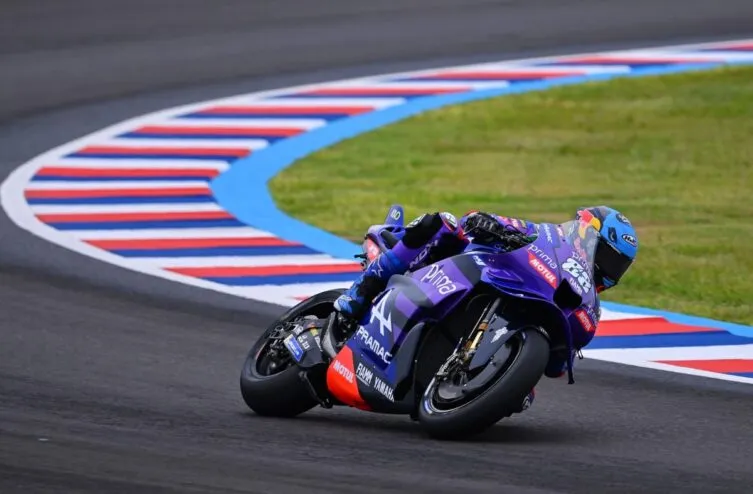
His story resonates beyond MotoGP. It’s for anyone who’s ever felt pushed aside, anyone who’s ever had to fight for a second chance.
Looking Ahead: Can Oliveira Still Rise?
With the second half of the 2025 season approaching, Miguel Oliveira knows what’s at stake. Every outing will be a test—not only of his body but of his place in the future MotoGP lineup. Will he return to race-winning form? Will his experience be enough to justify a renewal or even a step up in 2026?
Nothing is guaranteed. But one thing is clear: Oliveira won’t give up easily. His return to the paddock is already proof of that. Whether or not he reaches the front of the grid again, he has already shown the heart of a champion.
And in MotoGP, sometimes, that matters just as much as a trophy.








